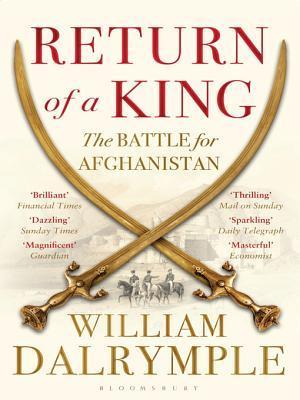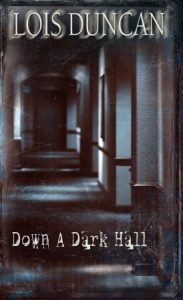Title: Return of a King: The Battle for Afghanistan
Author: William Dalrymple
First published April 16, 2013
608 pages, ebook
ISBN: 9781408828434 (ISBN10: 140882843X)
Rating: 4.35
Overview
In the spring of 1839, the British marched into Afghanistan with their imposing red cloaks and plumed hats, and swiftly took control of the country. For two years, they faced little resistance, until the Afghans rose up in a violent rebellion, calling for a holy war.
The First Anglo-Afghan War ended in disaster for the British, with their army ambushed and routed by poorly equipped tribesmen. “Return of a King” by William Dalrymple is an extraordinary retelling of this historic military campaign, delving into the lives of the remarkable characters involved, and utilizing contemporary Afghan accounts of the conflict.
This award-winning and bestselling book is a tragic reminder of the dangers of colonial ambition, cultural misunderstandings, and a powerful parable for our times.
About the Author
William Dalrymple, born in Scotland and raised on the shores of the Firth of Forth, is a celebrated author and historian. His first book, “In Xanadu,” was published when he was only twenty-two and won the 1990 Yorkshire Post Best First Work Award, as well as the Scottish Arts Council Spring Book Award.
His second book, “City of Djinns,” was researched during his six-year residence in Delhi and won the 1994 Thomas Cook Travel Book Award and the Sunday Times Young British Writer of the Year Award. His book, “From the Holy Mountain,” which explored the decline of Christianity in the Middle East, won the Scottish Arts Council Autumn Book Award for 1997.
Dalrymple’s collection of writings on India, “The Age of Kali,” won the French Prix D’Astrolabe in 2005. In 2003, his book “White Mughals” won the Wolfson Prize for History, the Scottish Book of the Year Prize, and was shortlisted for the PEN History Award, the Kiryama Prize, and the James Tait Black Memorial Prize.
Dalrymple is a Fellow of the Royal Society of Literature and the Royal Asiatic Society. He is also the founder and co-director of the Jaipur Literature Festival.
His contributions to travel literature earned him the Mungo Park Medal by the Royal Scottish Geographical Society in 2002. He has written and presented TV documentaries, including “The Long Search” and “Indian Journeys,” which won the Grierson Award for Best Documentary Series at BAFTA in 2002.
His Radio 4 series, “The Long View,” won the 2002 Sandford St Martin Prize for Religious Broadcasting.
In 2005, his article on the madrasas of Pakistan won the prize for Best Print Article of the Year at the FPA Media Awards. He received an Honorary Doctorate of Letters from the University of Lucknow in 2007 “for his outstanding contribution to literature and history.” In 2008, he won the James Todd Memorial Prize from the Maharana of Udaipur.
Dalrymple is married to artist Olivia Fraser, and they have three children. They currently reside on a farm outside Delhi.
Editoral Review
Return of a King: The Battle for Afghanistan by William Dalrymple is a meticulously researched and thought-provoking book that sheds light on a lesser-known conflict in the history of Afghanistan. William Dalrymple is a renowned historian and journalist who has previously written several books on South Asian history, including The Last Mughal, White Mughals, and City of Djinns.
Published on April 16, 2013, Return of a King is a comprehensive account of the First Anglo-Afghan War (1839-42), a conflict that saw the British Empire suffer one of its most humiliating military defeats. The book is a work of non-fiction that is based on extensive research and draws on primary sources such as diaries, letters, and official documents.
The style is narrative and engaging, with a focus on human stories and the impact of war on individuals, families, and communities. The themes explored in the book are complex and multi-layered, including imperialism, nationalism, religion, culture, and identity.
The plot of the book follows the events leading up to the British invasion of Afghanistan in 1839, the subsequent military campaign, and the aftermath of the war. The leading characters in the book are the British political and military leaders who were involved in the conflict, as well as various Afghan rulers, tribal chiefs, and common people who were affected by the war.
The setting is predominantly in Afghanistan, but the book also covers events in India, Russia, and Iran, which had a significant impact on the course of the war. The conflicts in the book are numerous and multi-faceted.
On the one hand, there is the clash between the British Empire and the Afghan rulers who opposed their invasion. On the other hand, there are internal power struggles within the Afghan royal court and tribal system, which complicated the situation for both sides.
There are also religious tensions between the Muslim Afghans and the British, who were seen as infidels, as well as ethnic divisions among the various Afghan tribes and clans. The historical and cultural significance of the book is immense, as it provides a detailed and nuanced understanding of the First Anglo-Afghan War and its legacy.
The book also has relevance for contemporary issues, such as the ongoing conflict in Afghanistan, the role of foreign intervention in the region, and the complex dynamics of Afghan society. The book’s exploration of the imperialist mindset and its consequences is particularly relevant in today’s era of global power politics.
The strengths of the book are numerous. The writing is vivid and evocative, bringing to life the people and places involved in the conflict.
The research is impeccable, drawing on a wide variety of sources to provide a comprehensive and balanced account of the war. The character development is also impressive, with each of the leading figures in the conflict portrayed in a nuanced and multifaceted way.
The themes explored in the book are complex and thought-provoking, creating a rich and layered narrative that engages the reader on many levels. The limitations of the book are few but notable.
The book can at times be overwhelming, with a vast number of characters, locations, and events to keep track of. The pacing of the book can also be slow at times, as the author takes time to delve into the intricacies of Afghan politics, culture, and society.
Finally, the book is often bleak and tragic, with little hope or redemption to be found in the story. Overall, Return of a King: The Battle for Afghanistan by William Dalrymple is a must-read for anyone interested in the history of Afghanistan, British imperialism, and the complexities of modern warfare.
It is a masterful work of historical writing that is both informative and captivating, providing a window into a fascinating and little-understood chapter in world history. The book is recommended for readers who are willing to engage with complex themes and are interested in exploring the nuances of human conflict.
It is rated five out of five stars.



